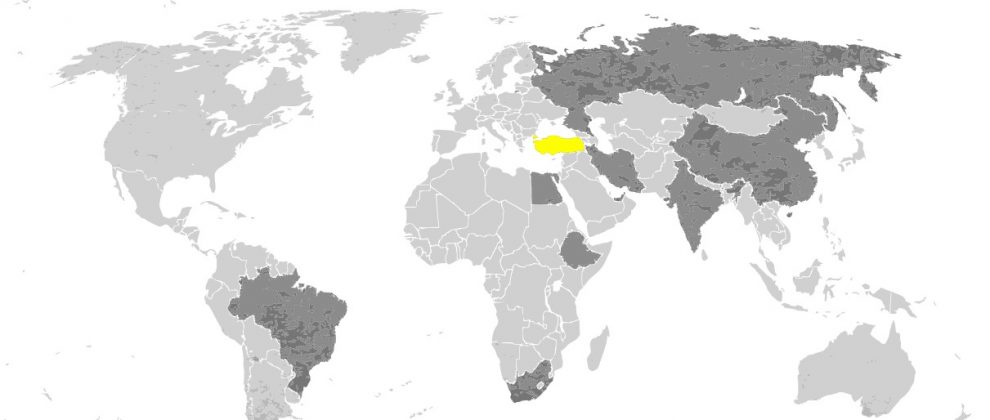Global leaders convened in Kazan for the BRICS summit, addressing the group’s international role. Turkey’s interest in joining since 2017 raises Western concerns about the alliance’s geopolitical influence.
Global leaders gathered in Kazan, Russia for the BRICS summit to discuss the group’s role in the international system. Associate Professor Dr. Merve Suna Özel Özcan highlighted BRICS’ influence, with nearly half the world’s population and 40% of global GDP represented. Turkey has shown interest in joining BRICS since 2017, aligning with its shift towards a multipolar world order. Dr. Özcan emphasized BRICS’ geopolitical impact, particularly in energy cooperation. Turkey’s potential BRICS membership has sparked Western concerns, with ties to Russia and China at the forefront. BRICS is seen as a counterweight to Western alliances, especially amid the Ukraine war.
On October 22, global leaders convened in Kazan, Russia, for the latest BRICS summit, where discussions centered on the evolving role of the group in the international system. Among those providing insight into the event was Associate Professor Dr. Merve Suna Özel Özcan, who offered an in-depth analysis of what BRICS means for Turkey.
Dr. Özcan began by highlighting BRICS’ growing global influence. “BRICS represents nearly half of the world’s population and around 40% of global GDP,” she explained. Formed in 2006, the platform has steadily grown in importance, especially for emerging markets and developing countries. Dr. Özcan was quick to point out that BRICS is not yet a formal institution like the European Union or the Shanghai Cooperation Organization. Instead, it remains a platform for cooperation, yet its geopolitical impact is undeniable.
For Turkey, interest in BRICS is not new. The country has been eyeing membership or at least closer cooperation with the group since 2017, dating back to the era of then-Finance Minister Mehmet Şimşek. Turkey has engaged with BRICS initiatives, particularly the idea of a BRICS Development Bank, designed to operate outside Western financial dominance. This aligns with Turkey’s post-2022 foreign policy shift towards a multipolar world order, one that challenges Western hegemony.
“BRICS is becoming a geopolitical force, particularly in the context of dedollarization and the creation of alternatives to the U.S.-led global order,” noted Dr. Özcan. She argued that Turkey’s interest in BRICS does not signal a departure from its Western alliances but represents a strategic opportunity to diversify its foreign relations. “It’s not an alternative, but a new avenue for cooperation,” she added.
From a geopolitical standpoint, BRICS provides Turkey with opportunities beyond economics, particularly in the energy sector. As Dr. Özcan observed, BRICS currently includes four major energy producers, and with Saudi Arabia’s potential membership, its energy influence is set to expand further. Turkey, positioning itself as an energy hub, could greatly benefit from BRICS cooperation.
The idea of Turkey joining BRICS, however, raises questions in the West. Media outlets in Europe and the U.S. have emphasized Turkey’s potential membership, framing it as a significant development: the first NATO member aligning with BRICS. This has stirred concerns reminiscent of the Cold War, particularly given Turkey’s existing ties with Russia and China.
While BRICS is not a military alliance, Dr. Özcan argued that its growing geopolitical influence cannot be ignored. Since the onset of the Russia-Ukraine war, BRICS has been increasingly seen as a counterweight to Western alliances, especially as it explores alternatives to the U.S. dollar. “The platform is expanding, and with BRICS+, its global significance will only continue to grow,” she concluded.
As BRICS evolves, so too does Turkey’s foreign policy, reflecting the country’s efforts to maintain strategic flexibility in an increasingly multipolar world. Whether or not Turkey formally joins BRICS, its engagement with the group is set to have lasting implications for its role in the global arena.






